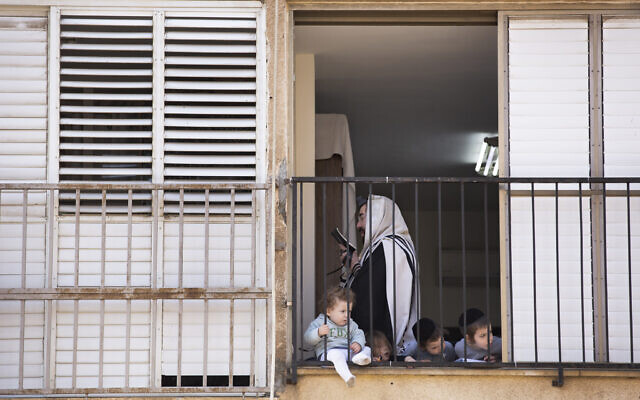Critics have blasted the across-the-board grants, saying they aren’t targeted at those hardest hit by the coronavirus pandemic

The National Insurance Institute announced Friday that a one-time government payout of up NIS 2,000 ($559) per family will be deposited in Israelis’ bank accounts on Sunday.
The payout was announced by Prime Minister Benjamin Netanyahu last week as a form of aid for families impacted by the coronavirus pandemic, to be deposited ahead of the Passover holiday. However, the payments were delayed and only received Knesset approval on Tuesday.
According to the National Insurance Institute, the Israeli equivalent to US Social Security, some 1.2 million families with 2.8 children under the age of 18 will receive payouts.
The grants amount to NIS 500 ($140) per child but are capped at NIS 2,000 per family. The total cost of the measure to the state will be NIS 1.4 billion ($390 million).
It wasn’t immediately clear when similar stipends for the elderly — also announced by Netanyahu last week — and people with disabilities would be deposited.
Critics have blasted the across-the-board payouts, saying they fail to distinguish between families that have been severely financially hamstrung by the government’s response to the virus and those that have not. Treasury officials were reportedly blindsided by Netanyahu’s announcement, with senior Finance Ministry officials telling Channel 12 they did not know where the money was supposed to come from.

The payouts come as widespread restrictions aimed at curbing the spread of the disease have been paralyzing Israel’s economy.
Since the beginning of March, Israelis have been ordered to stay at home, only venturing out for essential needs. Those who can work from home are able to continue to do so, but many of those who cannot and are not employed in essential jobs have been placed on leave without pay.
As the economy has ground to a halt, unemployment figures have spiked. On Wednesday, the unemployment rate in Israel soared to 25.33 percent, with 1,059,429 Israelis now looking for jobs.
Israel has taken a number of steps to shore up the economy amid the sharp drop-off in economic activity, among them increased unemployment benefits and the stipends for the elderly and families with children.
On Wednesday, Netanyahu and Finance Minister Moshe Kahlon announced an expansion of grants to self-employed Israelis whose businesses are struggling amid the pandemic. In addition to easing the criteria to receive the grant, they decided on raising the maximum sum a self-employed worker can receive to NIS 10,500.
A statement from the Finance Ministry said the overall aid package for self-employed workers will be increased to NIS 4 billion ($1.1 billion), subject to government approval.
Over 600,000 self-employed Israelis are expected to be eligible for the grant, according to the ministry.
As reported by The Times of Israel
